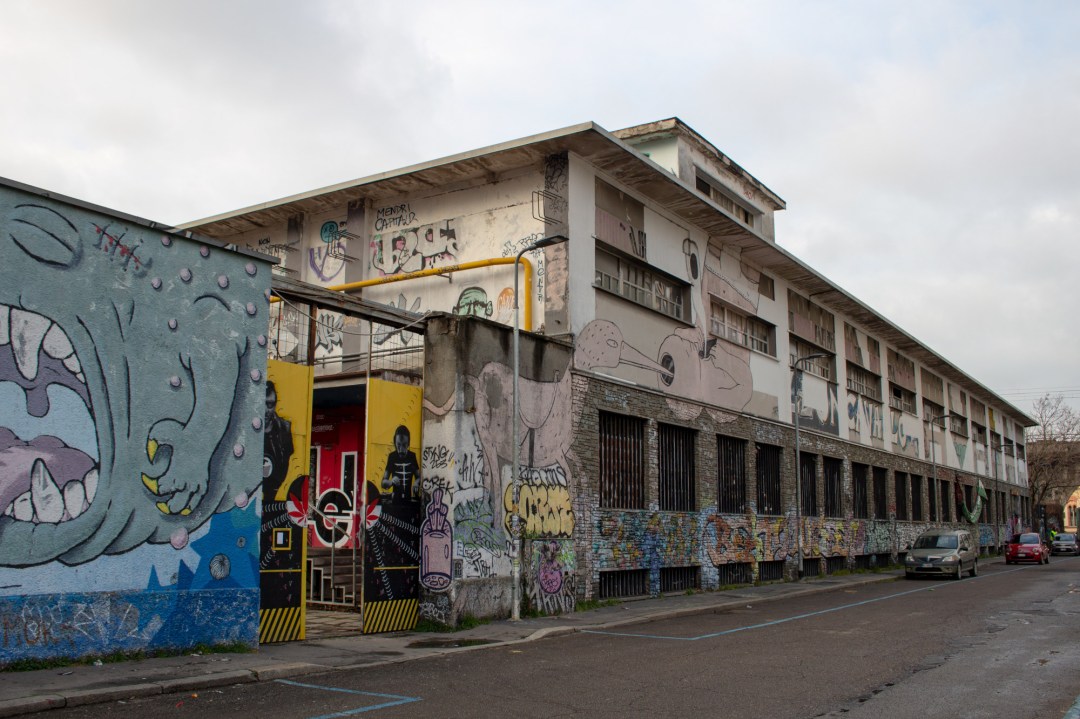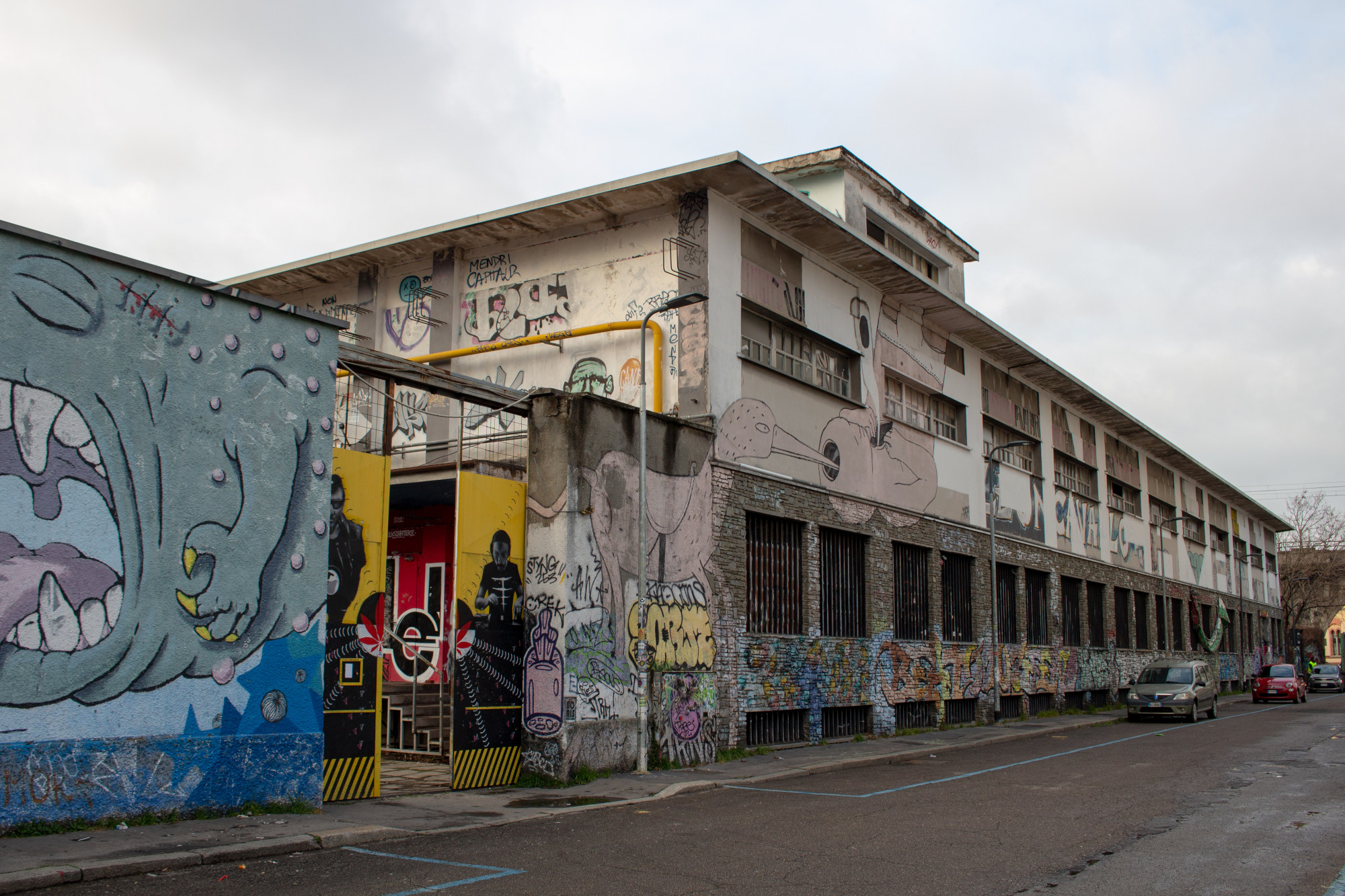Italian Prime Minister Giorgia Meloni has won what looks like a significant victory in her quest to eradicate squatting. About 250 carabinieri and police officers took possession this week of a former paper mill in Milan which had been occupied by numerous groups of squatters for 31 years.
The 4,000 square metre building was a citadel of far-left extra-parliamentary politics and culture, and also of loud late-night music and hard drug abuse. The parliamentary and mainstream left, meanwhile, were and remain, complicit.
Fourteen governments and four Popes came and went but an ever-changing cast of protagonists remained limpet-like inside what they called the Centro Sociale Leoncavallo to keep the revolutionary flame of 1968 alight.
The former paper mill is the main feature in a complex that also includes basements, courtyards, green spaces and a piazza. The squatters had covered the interior walls with graffiti which prompted one famous art critic to describe it as ‘the Sistine Chapel of our times’ – a barbed compliment, or desolate indictment, because the graffiti is devoid of spirituality, let alone God.
Naturally, the left-wing French daily Le Monde once described Italy’s squatter collectives such as the Leoncavallo, of which more than 200 remain, as ‘the flower in the buttonhole of Italian culture.’
During Thursday morning’s operation to take back possession of the Leonka, as it is nicknamed, there were no arrests or violence because the squatters, who number several hundred, had got word it was about to happen. Rather than resist they disappeared. But they plan a mass protest for 6 September at which many on the left from across Italy are expected as they plot their return.
Prior to taking over the property in 1994, the Leoncavallo collective’s then members had been evicted from a former pharmaceuticals warehouse in via Leoncavallo, elsewhere in Milan, hence the name, where they had been since 1975.
Meloni – who will become the longest serving of Italy’s 69 prime ministers since the fall of fascism in September next year if, as looks likely, she survives – was quick to praise the successful eviction operation. She posted on her social media platforms where she has a combined total of 10.5 million followers on X, Facebook, and Instagram:
‘In a State governed by the rule of law… zones exempt from legality cannot exist… Illegal occupations are detrimental to public safety and to citizens and the community who respect the rules. The government will continue to ensure that the law is respected always and everywhere. It is the essential requisite for the defence of the rights of everyone.’
Her Interior Minister, Matteo Piantedosi, said: ‘Since the start of our mandate nearly 4,000 squatted buildings have been repossessed. The Leoncavallo eviction is just one more step in a continuous and determined strategy.’
The Meloni government’s crackdown on squatters will be helped by a new law it has introduced that came into force in June.
This increases jail sentences for squatters from a maximum three years to a maximum seven years. In Italy, no one sentenced to less than two years goes to prison, nor usually, anyone sentenced to less than four.
But crucially, the new law enables the police to evict squatters without having to get permission from Italy’s notoriously slow, incompetent, and politicised courts.
Marco Panato, a lawyer specialising in landlord and tenant law, said of the new anti-squatter law on his website: ‘The truly revolutionary element lies in the opportunity to proceed to an immediate eviction, without the procedural delays that, until now, have made rapid remedies for landlords in practice impossible.’
In Britain, squatting only became a criminal offence in 2012 under the Tory Lib-Dem government with a maximum penalty of six months in prison and £5,000 fine.
But in Italy, it has been a criminal offence since 1930 – though the survival of the Leoncavallo mega-squat for so long demonstrates this made little difference.
There are thought to be about 50,000 squatted properties in Italy – many more it would appear than in Britain where the only available figure – 30,000 – is for squatters, not squatted properties, and dates from 2012. At their peak in the 1970s, they numbered about 50,000.
The former paper mill occupied by the Leoncavallo squatter collective is owned by one of Italy’s wealthiest families – the Cabassis – who made their fortune mainly in property.
Since 2005, they have been to court 133 times to evict the squatters but each time the attempt has failed. But in November 2024, a court ordered the Interior Ministry to pay the Cabassis €3.3 million (£2.8 million) in damages for its failure to evict the squatters.
It was this ruling above all that stung the Meloni government into action.
Marina Boer, president of one of the main squatter groups, the Association of Anti-fascist Mums of Leoncavallo and legal representative of the collective, told the media: ‘Milan is becoming a città di merda (city of shit) in which there is no opportunity, not even for a different vision, to propose alternatives, to create socialità (sociality).’
For many, probably the majority, the illegal occupation of the former paper mill for more than three decades has been what one local politician from Meloni’s Fratelli d’Italia party called ‘a national monument to criminality.’
Silvia Sardone, Euro MP of coalition partner La Lega, said: ‘Despite all the appeals and the shameful solidarity of a large part of the left, legality has finally been restored.’
Yet, no doubt, for people like Signora Boer, anyone who opposes such an occupation of someone else’s property rent-free is a fascist.









Comments